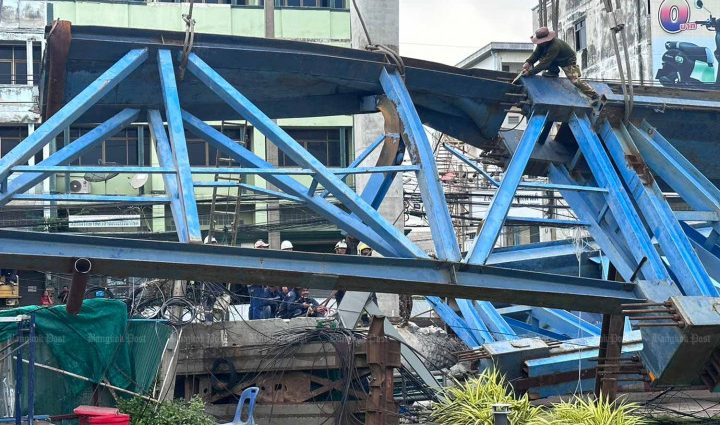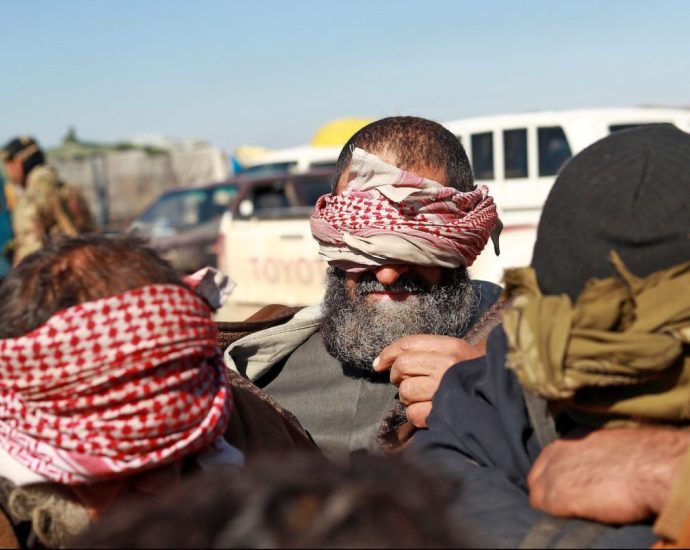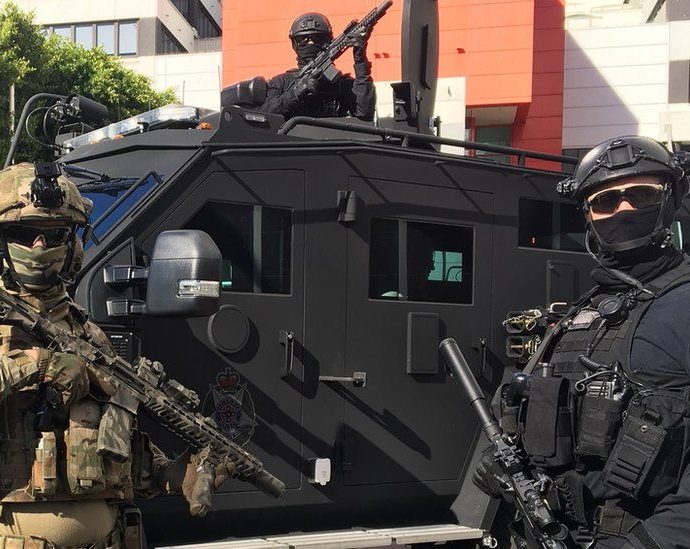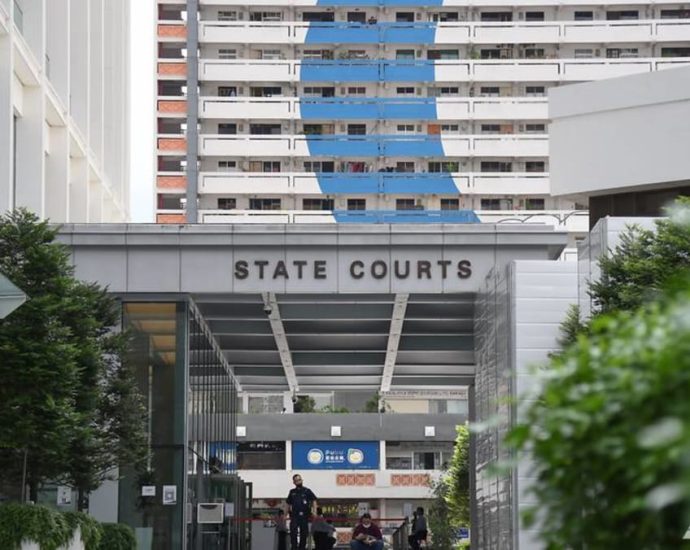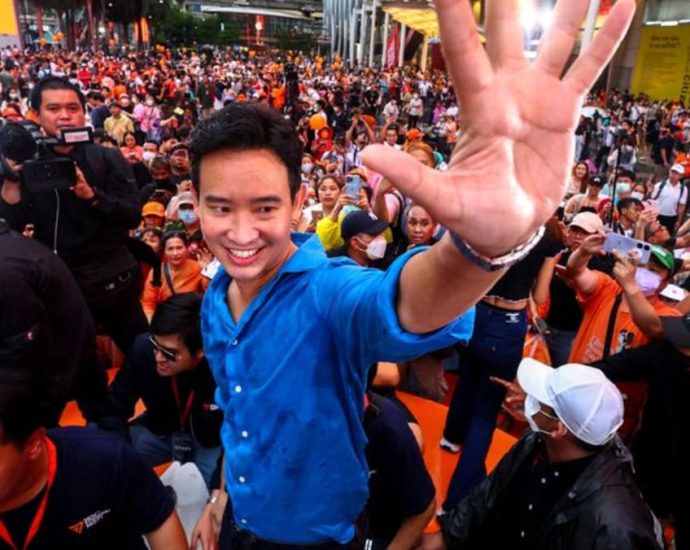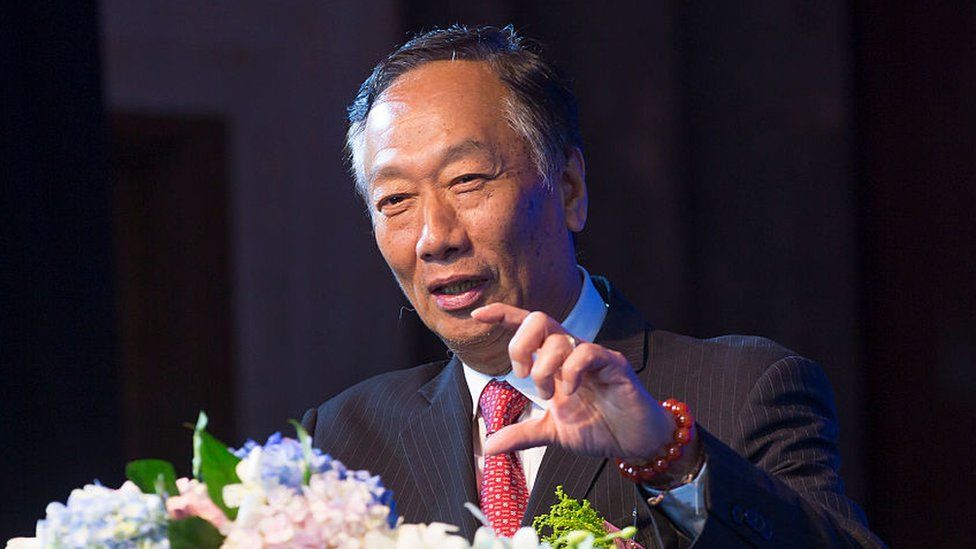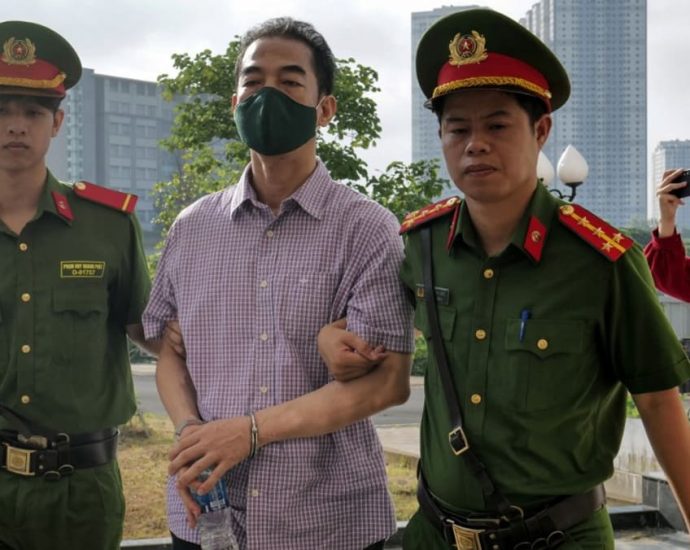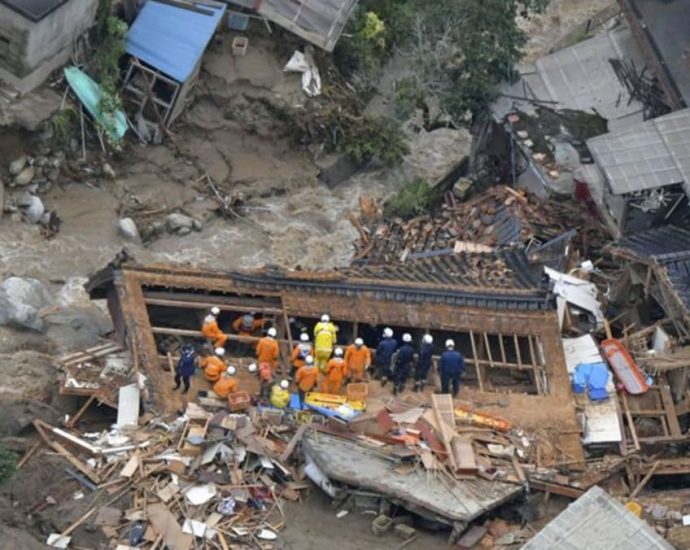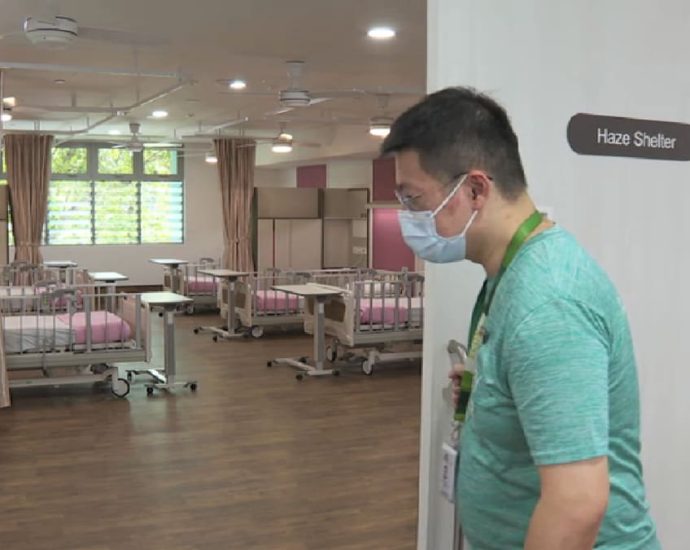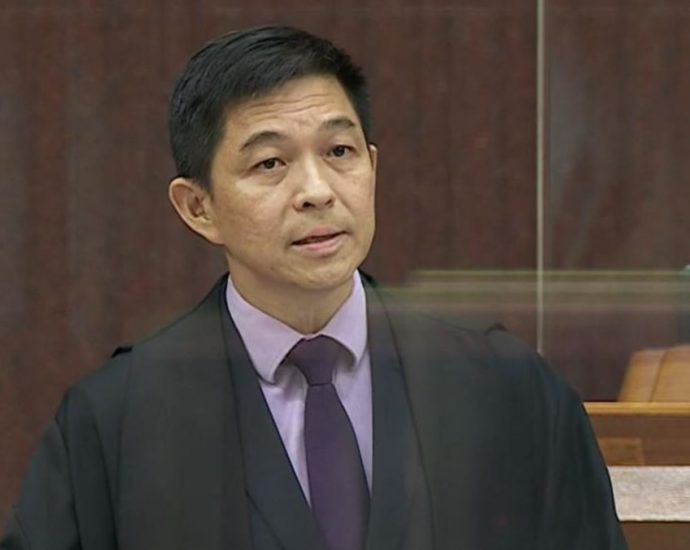Road closed in wake of Lat Krabang bypass collapse

Police on Tuesday closed the inbound side of Luang Phaeng Road in Lat Krabang district, where a section of elevated road under construction collapsed on Monday evening killing two people and injuring 12 others.
A concrete span about 100 metres long fell from a height of 20 metres onto Luang Phaeng Road between the Luang Phaeng branch of Lotus and Jorakay Noi police station.
Officials said it would take 3-4 days to clear away the debris – shattered concrete, reinforcing bars and steel supports.
It was initially thought that the giant steel crane that lifted the concrete segment toppled over and the huge span fell onto traffic below. The investigation was continuing.
The incident happened about 6pm on Monday. Two people were killed, an engineer and a construction worker.
Twelve people were injured, many vehicles were crushed, a building was damaged and several power poles were toppled.
The fallen span is part of an elevated road costing 1.6 billion baht being built between Onnut and Lat Krabang under contract to the Bangkok Metropolitan Administration.
Syrian Kurds force Westâs hand on detained ISIS fighters

The Kurdish-led administration in the autonomous region of northeastern Syria appears to have had enough. The sprawling region, roughly the size of Slovakia, is home to 10,000 detained ISIS fighters, making it the largest concentration of jailed terrorists in the world, according to the US State Department.
The ISIS fighters hail from dozens of countries – including the US, Canada and the UK – and have languished in jail cells for years despite calls from the administration, officially known as the Autonomous Administration of North and East Syria (AANES), to have their home countries repatriate them.
The administration’s military, the US-allied Syrian Democratic Forces, played an integral part in the fight against ISIS, or Islamic State.
Last month, the AANES revealed its plan to prosecute 2,000 of the foreign ISIS fighters, hoping to clear some of the backlog. The decision was prompted by the international community’s refusal to assume responsibility for their own citizens.
News of the move came as a surprise to diplomats, who were not previously informed about the authorities’ intended course of action.
The sudden announcement and reported swift implementation of the plan have raised concerns – including doubts that local authorities will be able to handle complex legal proceedings while ensuring due process. Furthermore, the level of international cooperation remains uncertain, leaving the fate of foreign fighters in limbo.
The foreign fighters have been detained in makeshift cells since 2019, alongside more than 10,000 foreign women and children who are currently held in camps.
Not only has the AANES been burdened with the monumental task of securing so many detainees in inadequate facilities, it has faced criticism for holding the prisoners without charges.
Complicating matters further, there is also the larger group of ISIS members from Syria and Iraq being held in detention facilities or camps, putting additional strain on the region’s limited resources.
West reluctant to act
The AANES has persistently called on countries, particularly those in the West, to repatriate their citizens. However, the states have been hesitant, citing a potential political backlash. There are also fears that their existing counterterrorism laws may not guarantee sufficient long-term prison sentences, as well as the risk of radicalization within their own prison systems.
As an alternative, the AANES has proposed an international tribunal to prosecute ISIS members. However, this has also been opposed, with the fighters’ home countries expressing concerns that a tribunal could ultimately lead to the large-scale repatriation of their citizens.
The recent decision to act unilaterally was made made immediately after the anti-ISIS coalition summit held in Saudi Arabia on June 8. In its statement, the AANES emphasized the court proceedings would be open to human-rights organizations, journalists, and the general public.
The AANES also said only the prisoners – not their families – would be subject to trial, and lawyers would be provided. Those convicted would serve sentences in local prisons, while those found not guilty would be released.
The push for trials was driven by various factors. One of the primary objectives is to apply pressure on the international community to address the problem. The unexpected manner in which the news of the trials was delivered served to bring the issue into the spotlight.
Moreover, the announcement aimed to garner more support from the countries involved to better assist the local authorities in managing the burden of foreign fighters and their families. This objective is clearly reflected in the administration’s statement, which emphasized the need for positive engagement and support from the international community during the trial process.
While the move has the potential to generate momentum and secure more support, it is unlikely that the concerned states will readily endorse the plan. One obstacle lies in the fact that the trials lack a legal basis, as the AANES does not have international recognition. Also, the legal system in northeastern Syria is inadequately equipped to ensure proper due process.
Additionally, conducting public trials could heighten security risks and create an environment conducive to prison breaks or attacks. Besides, the trials themselves will not address the underlying problem.
Because of the probable lack of extradition, foreign fighters, whether they are convicted or exonerated, will likely be unable to return to their countries of origin. This is why the US has determined the only solution is for states to repatriate their citizens.
Anticipating a potential negative reaction, the AANES has announced the trials will commence imminently, despite the lack of international support. However, several weeks have already passed without any concrete actions being taken, suggesting that negotiations are ongoing to persuade the AANES to reconsider its position.
Regardless of the outcome of these talks, it is imperative for the international community not to remain idle and simply hope the problem will vanish on its own. It is vital to prioritize the rights of those detained and ensure they receive fair trials as soon as possible. Equally important is for the victims of ISIS to feel justice is being served.
Disregarding these needs will not only hinder the healing process for communities impacted by ISIS but also carry the risk of further destabilizing the country and the broader region.
This article was provided by Syndication Bureau, which holds copyright.
Follow Haid Haid on Twitter @HaidHaid22.
Special Operations Group: Australia policeman’s book pulled after doubts over accuracy
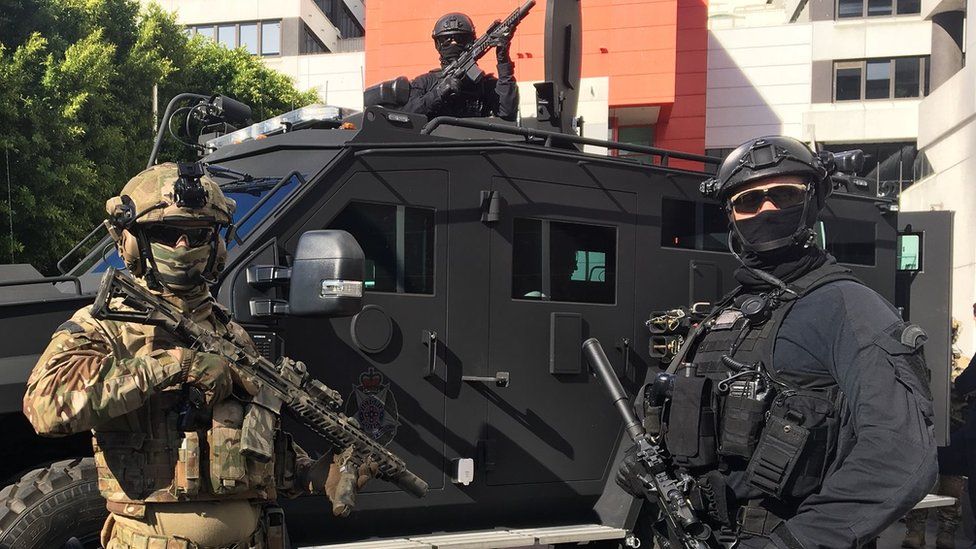 Victoria Police
Victoria PoliceA memoir by a former elite Australian police officer has been pulled from sale following questions over its accuracy.
Released two weeks ago, Special Operations Group recounted Christophe Glasl’s time as a member of the force.
It told of murders, drug busts and the response to the Port Arthur massacre – Australia’s worst mass shooting.
But Victoria Police say Mr Glasl was not at Port Arthur and have cast doubts about his version of other events.
Mr Glasl – who is described on LinkedIn as a self-employed author – has not responded to the allegations. He has been contacted for comment.
Publisher Hachette Australia said it had come to its attention that some of the content in the book is “inaccurate”.
“We have taken the decision to withdraw this book from sale immediately while we undertake further review,” a spokeswoman said in a statement.
It has also removed mention of the book from its website.
Hachette had previously promoted Mr Glasl’s book as a “raw, behind-the-scenes look” at what went on in the Special Operations Group (SOG) – “where solidarity, camaraderie and loyalties were undermined by bullying, bastardisation, drug use, lies and betrayal”.
“It is… a gripping account of major jobs he attended: fatal shootings, a triple murder, a 100-million-dollar drug bust and the Port Arthur massacre, to name just a few.”
But in a statement, Victoria Police – where Mr Glasl is said to have worked for 16 years – raised questions about the accuracy of the book, including Mr Glasl’s claims about incidents he attended.
Of particular concern was a chapter focusing on his “claimed involvement” in the “resolution” of the Port Arthur massacre in Tasmania, the police force said.
The Australian newspaper reported Mr Glasl has told his publishers that he was not in Tasmania on the day of the massacre and that he had always intended his account to be third-hand.
In April 1996, 35 people were killed when gunman Martin Bryant opened fire at a former penal colony and tourist attraction.
The mass shooting prompted a radical overhaul of the nation’s gun control laws.
A Victoria Police spokesperson told the Sydney Morning Herald that only 10 Victorian SOG members went to Tasmania that day.
“To confirm, the former member was not part of the SOG deployment to Port Arthur nor was he even in Tasmania at the time,” the statement said.
Related Topics
-
-
4 October 2017
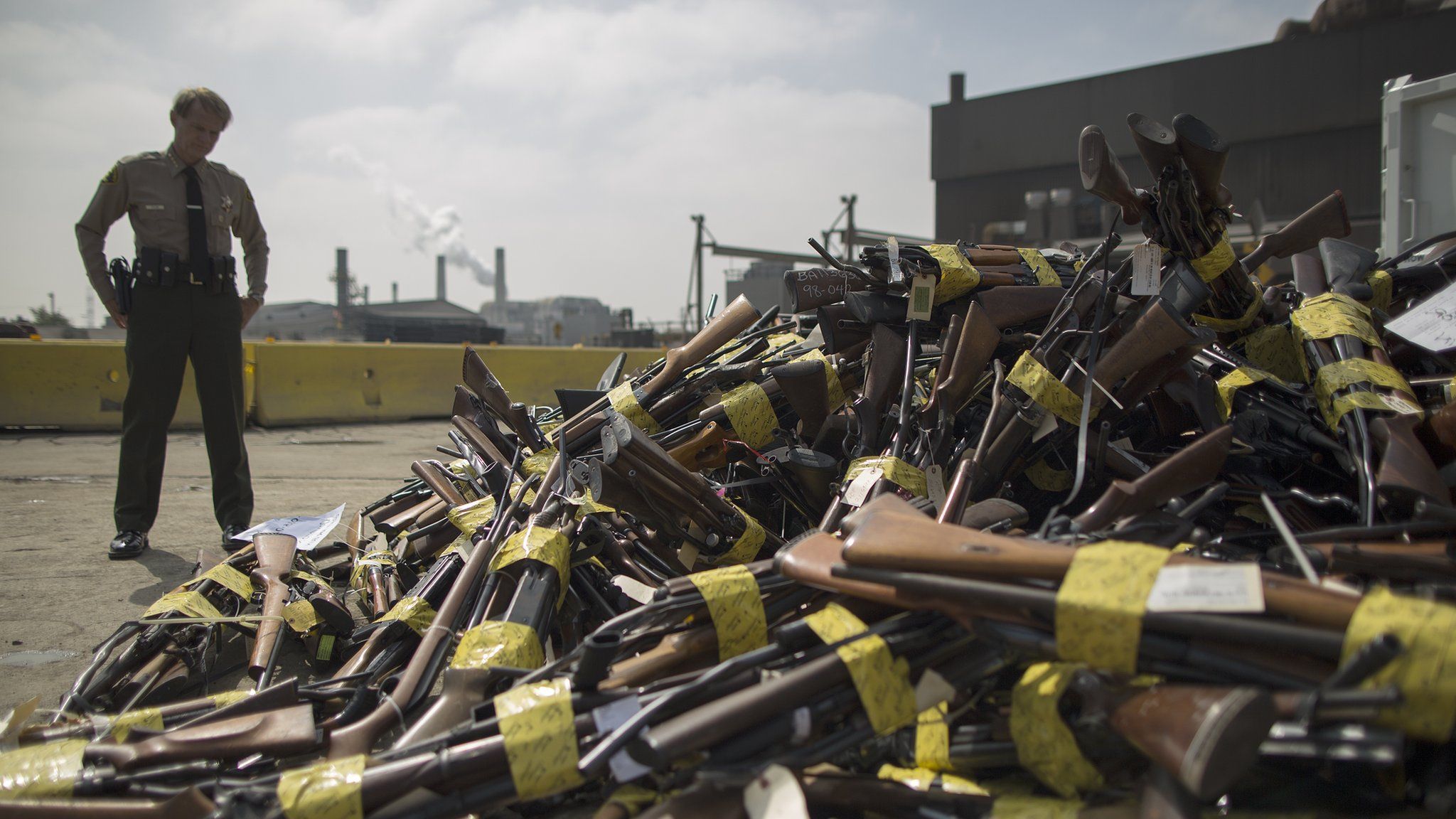
-
Underage driver who bought car sharing account and ferried passengers for money given probation
SINGAPORE: An underage driver was sentenced to probation on Tuesday (Jul 11) after he bought a car sharing account and began ferrying passengers for cash. The 17-year-old was only caught after he was stopped at a police roadblock, where he was found without a driving licence. The teenager, now 19,Continue Reading
Thailand’s monarchy looms over battle for prime minister: Analysis
But the battle over who gets the job could lead to weeks or even months of deadlock thanks to the votes of a 250-seat Senate, appointed by a junta, that could block the election-winning progressive alliance from securing its choice in a combined vote of both chambers. The system wasContinue Reading
Foxconn: Apple supplier drops out of $20bn India factory plan
 Reuters
ReutersApple supplier Foxconn has pulled out of a $19.5bn (£15.2bn) deal with Indian mining giant Vedanta to build a chip making plant in the country.
The move comes less than a year after the companies announced plans to set up the facility in Prime Minister Narendra Modi’s home state of Gujarat.
Some analysts say it marks a setback to the nation’s technology industry goals.
However, a government minister says it will have no impact on the country’s chip making ambitions.
Taiwan-headquartered Foxconn told the BBC that it will now “explore more diverse development opportunities”.
The firm also said the decision was made in “mutual agreement” with Vedanta, which has assumed full ownership of the venture, but did not give details on why it withdrew from the deal.
“We will continue to strongly support the government’s ‘Make in India’ ambitions and establish a diversity of local partnerships that meet the needs of stakeholders,” Foxconn added.
New Delhi-based Vedanta said it had “lined up other partners to set up India’s first [chip] foundry”.
“The surprise pull-out of Foxconn is a considerable blow to India’s semiconductor ambitions,” Paul Triolo from global advisory firm Albright Stonebridge Group told the BBC.
“The apparent cause of the pull-out is the lack of a clear technology partner and path for the joint venture,” he added. “Neither party had significant experience with developing and managing a large-scale semiconductor manufacturing operation.”
However, Rajeev Chandrasekhar, India’s Minister of State for Electronics and Information Technology, said on Twitter that Foxconn’s decision had “no impact on India’s semiconductor fab[rication] goals. None.”
Mr Chandrasekhar added that Foxconn and Vedanta were “valued investors” in the country and “will now pursue their strategies in India independently”.
The Indian government has been working on strategies to support the chipmaking industry.
Last year, it created a $10bn fund to attract more investors to the sector, in a bid to become less reliant on foreign chipmakers.
Prime Minister Modi’s flagship ‘Make in India’ scheme, which launched in 2014, is aimed at transforming the country into a global manufacturing hub to rival China.
In recent years, several other firms have announced plans to build semiconductor factories in India.
Last month, US memory chip giant Micron said it would invest up to $825m to build a semiconductor assembly and test facility in India.
Micron said that the construction of the new facility in Gujarat will begin this year. The project is expected to directly create up to 5,000 roles, and another 15,000 jobs in the area.
Related Topics
-
-
14 September 2022

-
Trial opens for 50 Vietnam officials over rescue flight bribes
HANOI: More than 50 officials went on trial in Vietnam on Tuesday (Jul 11) for alleged corruption over repatriation flights during the COVID-19 pandemic, a scandal that has seen several senior ministers fired. The case is part of a major anti-corruption drive that led to President Nguyen Xuan Phuc’s suddenContinue Reading
Heavy rain in southern Japan leaves up to six dead, 3 missing
TOKYO: Torrential rain over Japan’s southwestern island of Kyushu triggered floods and landslides that left up to six people dead and rescuers searching for three missing, officials said on Tuesday (Jul 11). The Japan Meteorological Agency downgraded the special warnings for heavy rains, issued on Monday for northern parts ofContinue Reading
Nursing homes brace for haze by stocking up on air purifiers, monitoring vulnerable residents
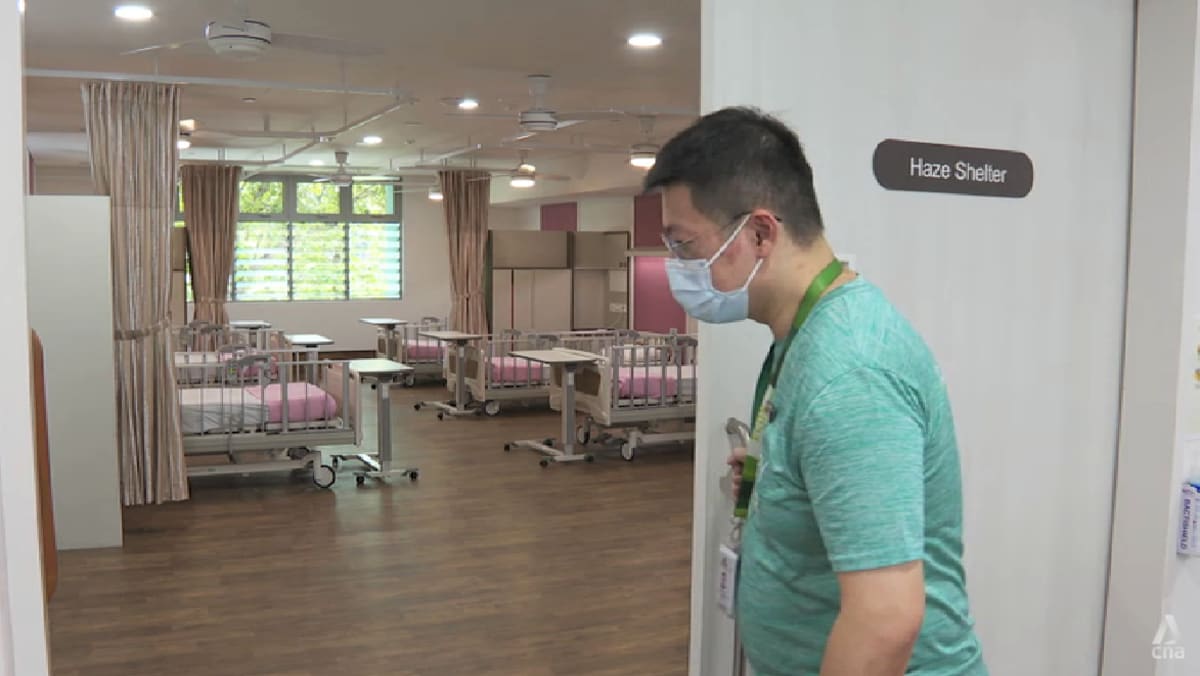
Nursing homes told CNA that they will work closely with the authorities to ramp up measures if needed, such as suspending outdoor activities and increasing water intake for residents.
HAZE SHELTERS TO PROVIDE REFUGE
ECON Care Residence on Henderson Road, for instance, has designated haze shelters fitted with air filters and exhaust fans to provide refuge for the most vulnerable residents.
The air filtration system in the shelters circulates fresh air in a closed loop, meaning that air purifiers are not required in these rooms and can be used in other areas of the nursing home.
“When the haze situation worsens, for example, when the PSI (Pollutant Standards Index) level goes above 150, that’s when we will start to utilise the haze shelters,” said ECON Healthcare Group (Singapore)’s chief executive officer Ong Hui Ming.
“Typically we will care for seniors with chronic diseases, lung diseases and respiratory conditions in the haze shelter.”
Speaker of Parliament Tan Chuan-Jin apologises for using unparliamentary language

SINGAPORE: Speaker of Parliament Tan Chuan-jin has apologised for using unparliamentary language during a parliament sitting in April this year.
According to a reddit thread, Mr Tan had muttered “f****** populist” after he called for Member of Parliament (MP) Vikram Nair (PAP-Sembawang) to respond to MP Jamus Lim (WP-Sengkang).
“I had to listen to the recording as I did not recall the occasion,” Mr Tan said in a Facebook post on Tuesday (Jul 11).
“Based on the clip it appears that I had a reaction to a speech made in the chamber,” he added.
Mr Tan said that when he listens to speeches made, he like everyone else, “form views on them”.
He added that what was said were his private thoughts which he had muttered to himself and not to anyone.
“However I should not have expressed them aloud or in unparliamentary language, and I apologise for that,” Mr Tan said.
Mr Tan also said that he has spoken to Mr Lim and apologised to him, to which Mr Lim “has kindly accepted”.

